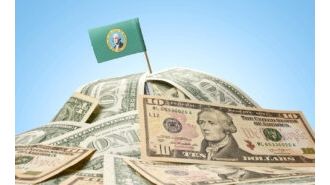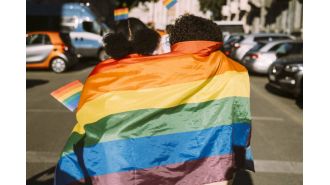Liam Payne's passing should serve as a reminder to prohibit 16-year-old pop stars.
Child stars often struggle in adulthood and engage in destructive behaviors, indicating a pattern rather than a coincidence.

It's a heartbreaking reality that a celebrity's unexpected death can stop the world in its tracks. I was reminded of this on Wednesday when my nightly routine of scrolling through TikTok was abruptly halted by the shocking news that Liam Payne, formerly of the popular boyband One Direction, had passed away. The news was confirmed by local police, who revealed that the 31-year-old singer-songwriter and father-of-one had tragically lost his life after falling from the third-floor balcony of a hotel in Buenos Aires, Argentina. Just a few weeks prior, Payne had been in the same city to support his former bandmate Niall Horan's performance, and was even seen happily singing along with his girlfriend Kate Cassidy.
As I watched the news of Payne's death unfold on various media outlets and social media, I couldn't help but feel stunned and deeply saddened by this turn of events. It was a stark reminder that life is precious and can be taken away in an instant, especially for someone so young, talented, and with so much to look forward to. It made me question the harmful effects of child stardom and the pressure we put on young individuals to achieve fame and success at such an early age.
We were first introduced to a bright-eyed and ambitious 14-year-old Liam Payne in 2008, when he auditioned for the X Factor with a charming rendition of Fly Me to the Moon. Although he impressed the judges, including Simon Cowell and Cheryl Cole, it wasn't until two years later, in 2010, on his second attempt at the TV singing competition, that everything fell into place. Along with Harry Styles, Zayn Malik, Louis Tomlinson, and Niall Horan, Payne was placed in the newly formed group One Direction, which would soon become the UK's biggest boy band since The Beatles.
In just a matter of months, Payne and his bandmates were catapulted into superstardom, with legions of fans, paparazzi documenting their every move, and the media constantly prying for personal information. While becoming a famous singer was a dream come true for Payne, the harsh reality of global fame quickly made itself known. After the band went on an indefinite hiatus in 2016, all members became more vocal about the negative impact of their fame and grueling work schedules.
In a 2021 interview on the Diary of a CEO podcast, Payne opened up about the strict routine of being on tour, where he often felt locked in his hotel room with minimal supervision and access to the minibar, leading to him having a "party for one." He also shared his struggles with anxiety and even admitted to having suicidal thoughts. These experiences, along with the pressure of constantly being in the public eye, took a toll on Payne's mental health.
While the circumstances surrounding Payne's death are still being investigated, reports have revealed that emergency services were called to the hotel before his passing due to concerns of his erratic behavior. A transcript of the call also mentioned that Payne was thought to be intoxicated with drugs and alcohol and had been causing damage to his room.
Sadly, the tragic end of Liam Payne's life should serve as a reminder to rethink the idea of thrusting young individuals into the limelight before they have the chance to grow and mature. We have seen far too many child stars struggle with fame and engage in self-destructive behaviors as they navigate adulthood. Even before her chart-topping success with Baby One More Time, Britney Spears had her first taste of fame as a cast member on The Mickey Mouse Club. Her story is a prime example of how early fame and constant scrutiny can lead to a public breakdown and ongoing mental health issues.
Similarly, Justin Bieber, who became famous at a young age, has also spoken out about the negative impact of having access to anything he wanted before learning how to navigate the real world. In a 2019 Instagram post, he opened up about making poor decisions and being the subject of intense public scrutiny, which ultimately led to him being one of the most hated people in the world.
Fame can be a tough road to navigate at any age, but it's particularly challenging when a person is thrust into the spotlight before they have a chance to fully develop and understand the world. Liam Payne's exposure to fame and its harsh realities at such a young age may have contributed to his struggles and ultimately, his untimely death. It's a sobering reminder that fame and fortune should not come at the expense of a person's well-being and mental health.
As we mourn the loss of Liam Payne, it's important to reflect on the damaging effects of child stardom and the pressure we put on young individuals to achieve fame and success. Perhaps if Payne had been given the chance to grow up in private without the constant scrutiny and pressure of fame, he may have been better equipped to handle the weight of the world's attention. Let's use this tragedy as an opportunity to reevaluate our priorities and ensure that we prioritize the well-being and growth of young individuals before thrusting them into the spotlight.










